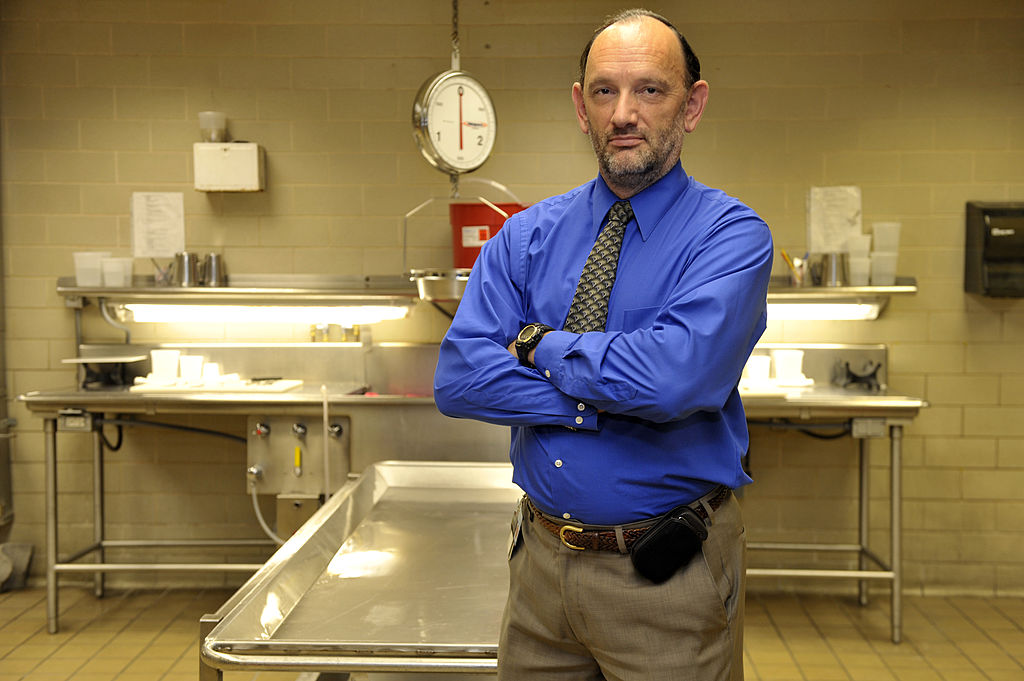Racial Bias: Audit Finds 36 In-Custody Deaths Should Be Labeled Homicides

Last Thursday, Maryland officials announced that an audit into autopsies of in-custody deaths revealed that at least 36 cases should’ve been labeled as homicides.
According to AP, the audit was initiated as a result of testimony Dr. David Fowler, Maryland’s chief medical examiner from 2002-2019, gave for the defense in the trial of Derek Chauvin, the police officer found guilty of killing George Floyd. Fowler theorized that Floyd’s death was a result of a sudden heart disturbance due to a pre-existing heart disease.
Mans really said “His heart just gave out, the knee on his neck had nothing to do with it!”
While his theory clearly didn’t resonate with the jury, it did result in over 400 medical experts signing a letter sent to Maryland Attorney General Anthony Brown condemning Fowler’s testimony, as it veered far from the boundaries of accepted forensic practice.
The letter spurred the Attorney General to launch an audit into the autopsies of 87 in-custody deaths. The autopsies were reviewed by several three-person panels and focused on deaths that involved people who were being restrained. In 36 cases, all three panelists believed that the deaths should’ve been labeled as homicides. In another five cases, two of the three panelists believed the deaths should’ve been labeled homicides.
In news surprising no one who’s been paying attention, the investigation revealed a pattern of racial bias, specifically anti-Black bias, during Fowler’s tenure as chief medical examiner.
From AP:
The announcement followed a comprehensive review of such cases spurred by widespread concerns about the former state medical examiner’s testimony in the death of George Floyd.
Medical examiners under Dr. David Fowler displayed racial and pro-police bias, according to the review. They were “especially unlikely to classify a death as a homicide if the decedent was Black, or if they died after being restrained by police,” Maryland Attorney General Anthony Brown said during a news conference.
“These findings have profound implications across our justice system,” Brown said. “They speak to systemic issues rather than individual conduct.”

Maryland Gov. Wes Moore announced on May 15 that he signed an executive order allowing Brown to review the 41 cases to determine if any of them should be reopened. It should be noted that while officials found these cases should be labeled homicides, they didn’t go so far as to say any of the officers involved should be prosecuted or that foul play was a factor in any of the in-custody deaths.
In addition to signing the executive order, Moore also announced the creation of a statewide task force focused on investigating in-custody deaths.
As for Fowler, he more or less told on himself through his testimony. Before the investigation, there was already side eye at how he did his job from his rulings on the in-custody deaths of Anton Black and Tyrone West.
From AP:
In 2023, state officials approved a settlement agreement that reformed the process for conducting autopsies on people killed in police custody.
That change came in response to the 2018 death of Anton Black, who died in police custody on Maryland’s Eastern Shore. The 19-year-old’s death was captured on video, which showed police in rural Greensboro holding the unarmed teenager down for more than six minutes.
Fowler ruled that Black died because of a sudden cardiac event while struggling with police — not because they pinned him in a prone position. His death was declared an accident.
Fowler similarly ruled that Tyrone West died of natural causes after struggling with Baltimore police following a traffic stop in 2013. Witnesses and the officers themselves said there was a violent struggle between the officers and West. His manner of death was undetermined, according to the autopsy.
As a result of the audit, both deaths were on the list of cases that should’ve been labeled homicides.
While it doesn’t change anything for the families who lost their loved ones as a result of questionable policing, hopefully, this provides a solid framework for the states serious about tackling the issue of in-custody deaths.
SEE ALSO:

